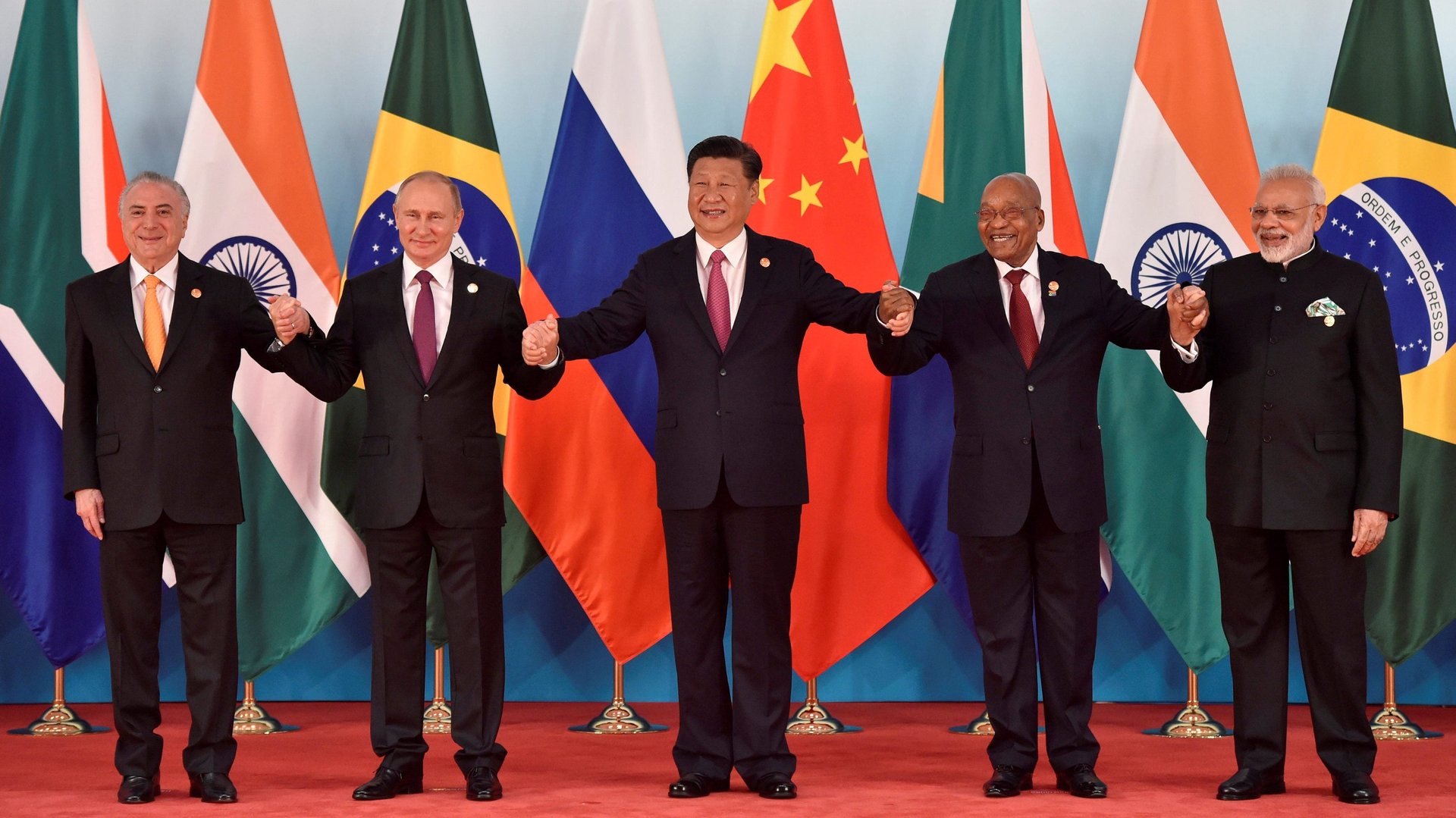“BRICS” is not big enough to capture Xi Jinping’s global ambitions
Back in 2001, former Goldman Sachs chief economist Jim O’Neill coined the acronym “BRIC” to refer to the major emerging economy countries of Brazil, Russia, India and China, which, with the addition of South Africa a decade later, were regarded as the next global economic powerhouses.


Back in 2001, former Goldman Sachs chief economist Jim O’Neill coined the acronym “BRIC” to refer to the major emerging economy countries of Brazil, Russia, India and China, which, with the addition of South Africa a decade later, were regarded as the next global economic powerhouses.
But with Russia and Brazil struggling in recent years, as O’Neill himself noted, the grouping came to seem outdated (some, of course, were always skeptics). In 2015, Goldman Sachs even shut down its BRICS investment fund after years of losses, marking what Bloomberg called “the end of an era.”
China’s president Xi Jinping thinks otherwise: rather than dissolving the BRICS, he is calling for an expansion. The Chinese concept of “BRICS Plus,” which was first floated in March, enjoyed a prominent presentation at the ninth BRICS annual summit held this week in Xiamen in southern China. Giving a keynote speech at the Sept. 3 opening ceremony, Xi said:
We should promote the “BRICS Plus” cooperation approach and build an open and diversified network of development partnerships to get more emerging market and developing countries involved in our concerted endeavors for cooperation and mutual benefits.
“BRICS Plus” is also featured in the joint statement released by BRICS states after the summit concluded, in which they called for greater economic cooperation beyond the five-member bloc, which was first formally established in 2006. In addition, China also invited observer nations including Mexico and Thailand to join discussions about the possible expansion of the BRICS bloc on the sidelines of this year’s summit.
The “BRICS Plus” plan is one of Xi Jinping’s latest attempts to take on a more assertive role on the global stage, as the US turns inward under president Donald Trump’s “America First” policies. At the Davos World Economic Forum meeting at the start of this year, Xi famously rebuked Trump without mentioning his name. Speaking at an international conference attended by the BRICS and observer nations Tuesday (Sept. 5), Xi did that again.
“Some countries have become more inward-looking, and their desire to participate in global development cooperation has decreased,” Xi was quoted by Reuters as saying. He also noted that the Paris climate accord has “met with resistance.” Trump has vowed to pull the US out of the agreement to fight climate change.
Rhetoric aside, Xi announced plans to invest 500 million yuan (about $76 million) to set up an economic and technology cooperation program for BRICS states, and invest another $4 million in the New Development Bank, which was established by the BRICS in 2014 as an alternative to the Western-led World Bank and IMF multilateral organizations. He also pledged to offer $500 million in assistance funds for “South-South cooperation,” a vague, broadly defined term that refers to social and economic exchanges among developing countries.
For Xi, the only problem seems to be that the global commitments are piling up. In May, Xi invited dozens of world leaders to a big forum in Beijing, and touted his trillion-dollar infrastructure spending spree, the “One Belt, One Road (OBOR)” initiative. During the event, Xi pledged $113 billion in extra funding for the the project, which dwarfs his new contributions to the BRICS.
It makes sense given that OBOR is his own pet project.